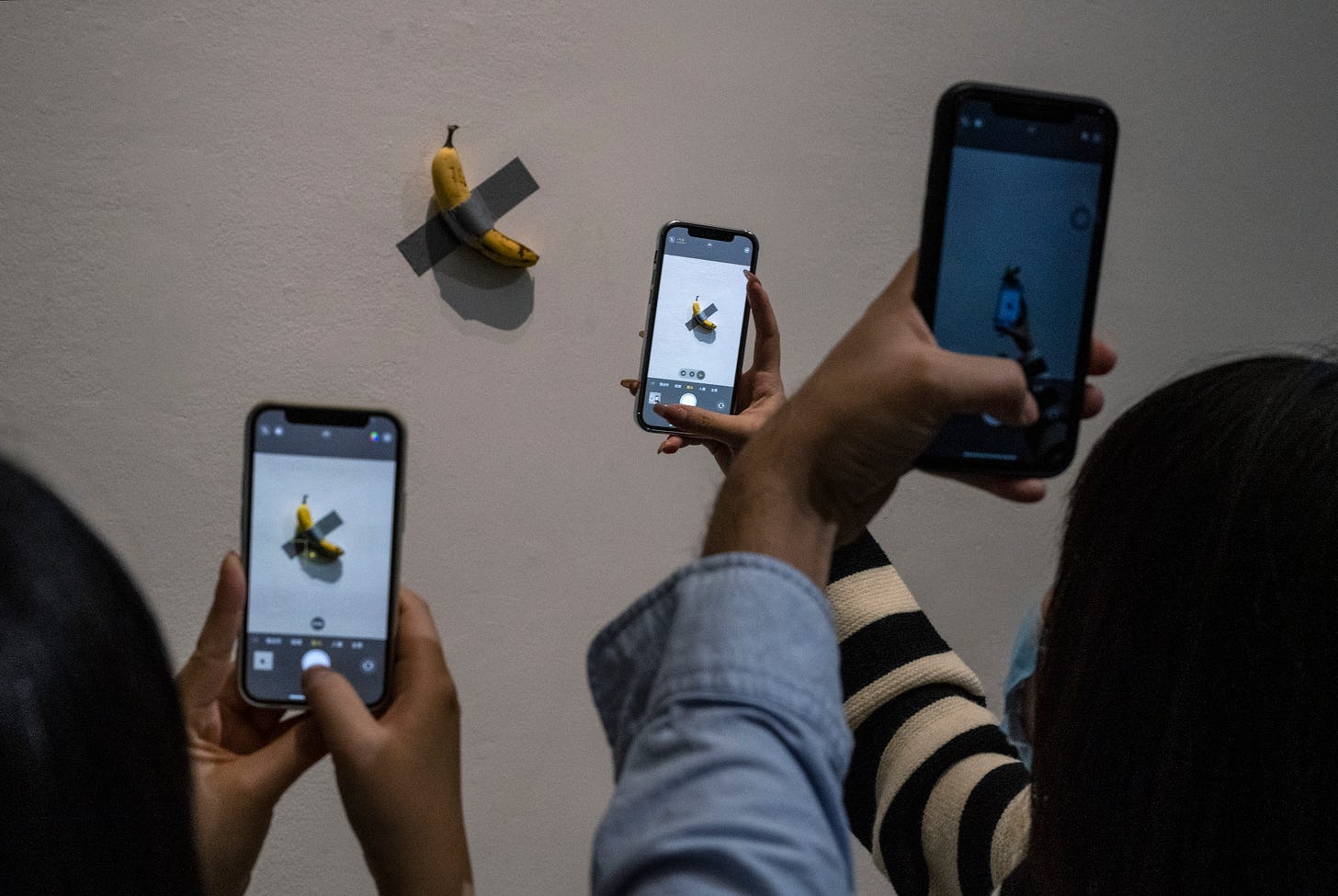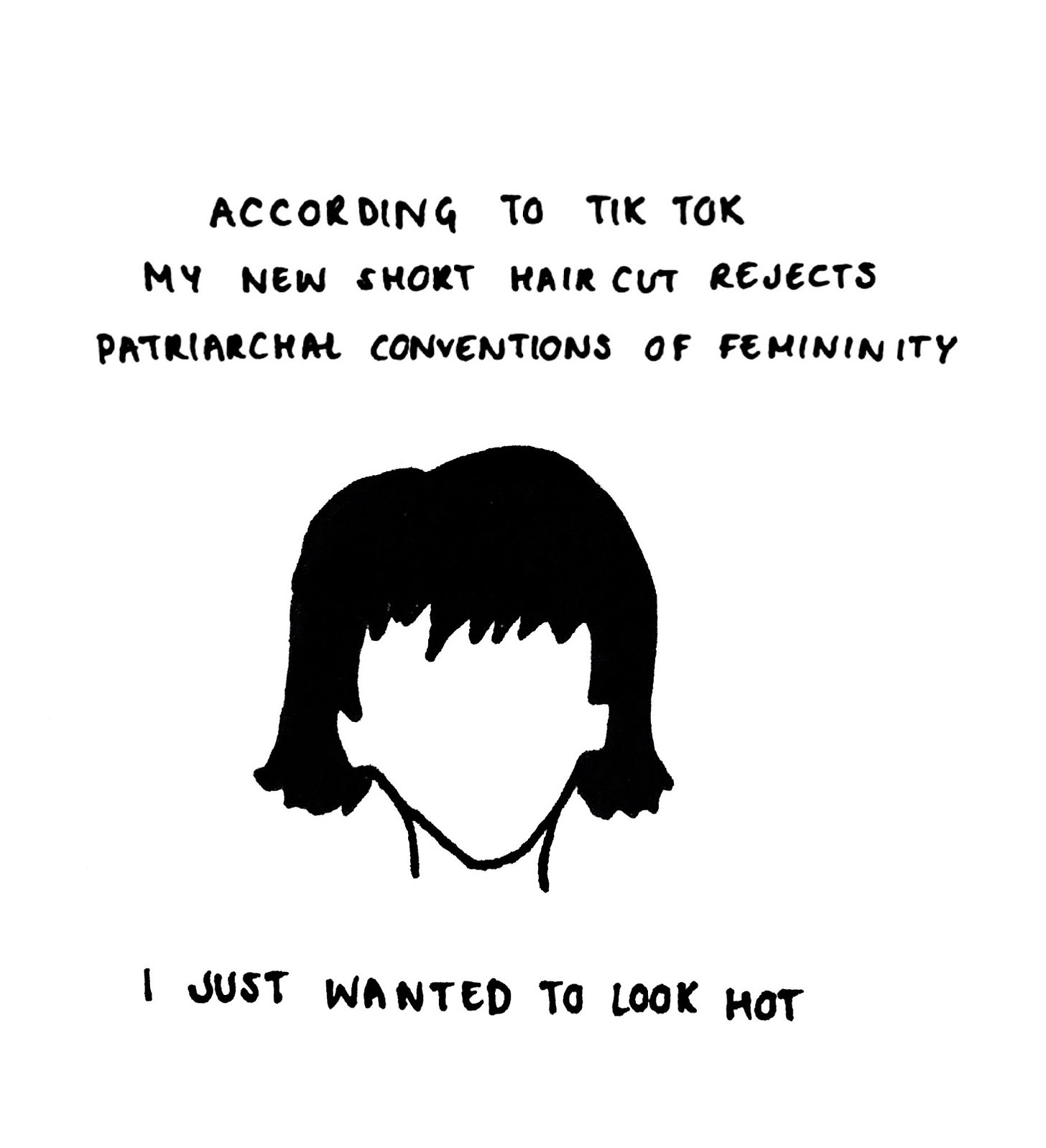Hello, readers, and welcome to another edition of Substack Reads, your digest of great writing. Today, a heart-stopping story of one woman’s fight for girls’ education in her country, questioning the role of the canon in modern culture, and the research behind our quest for unscrollable mediums.
As ever, please share what you are reading and listening to, and what you think may be missing from this week’s installment. We read every comment, and the top recommendations just might appear in next week’s Reads.
NEWS
Risking our lives for education
A 34-year-old mother shares her gripping story of building a network of underground schools for women and girls in Afghanistan and asking the Taliban permission to do it
—
inI’m terrified. When the Taliban recently issued the bans barring women and girls from education, it was a horrible moment for me and my family. The night after the ban was issued, we all gathered late in the night at my house: my husband, myself, and my family members. My loved ones advised me that I should close all of the centers. They said they were too afraid that the Taliban would come and arrest us and throw us in prison. The next morning, however, in our WhatsApp group chat between the centers, I kept getting texts and voice messages from my students. They were crying and begged me not to close the centers. They said if I wanted to protest, they would come with me and we could do it together. That day I decided to keep the centers open, no matter what might happen. I kissed my children goodbye the next morning knowing I might not come home. That I might be imprisoned or killed.
ART
The death of the canon
With the fracture of shared pop-cultural landmarks and the push toward ever deeper cultural bubbles, there is undoubtedly a schism in our shared values. The next question for Sam Valenti is: What is “canon”?
—
in
You need a wide spread of adoption or awareness to be canon, cause if no one knows what you are talking about, there’s no center. That’s why so few things achieve it these days and things that feel like popular canon, like superhero films, are actually just the reinforced storytelling of intellectual property over 50 years. Most of these characters languished in the niches of comics, including the tentpole heroes, until the global machine was right both technologically and culturally for mass adoption of these characters. Look up ’70s Marvel movies if you need further proof.
There have been considerable attempts to upend the canon over the past 10 or so years. Sometimes this upending is moral, around the content of works, or the allegations and sad truths around the artists themselves. Oftentimes the need to reassess the canon’s historical inclusion of predominantly white male artists has been crucial. (A positive example in the experimental music canon is the rediscovery of the late Black composer Julius Eastman, whose work was largely forgotten in comparison to his downtown NYC peers, and has now found greater success in death than in life.)
So why should we be thinking about canon at all? Won’t it take care of itself? The collective time melt (uh, “vibe shift”) has led to an increased distrust in institutions, which means commonly held beliefs have potentially been upended. It’s important to know where things stand to understand where they go next, if we can at all.
MEDIA
Six ways hybrid work is changing our attention
Whether it’s listening to the radio, putting on some vinyl, or picking up a good hardback, new research shows audiences are seeking the nostalgia of unscrollable formats
—
, , and inIn a time of fast-paced growth across technology, culture, media (and, er, everything?), it’s interesting to see the value we still give to formats of the past—vinyl records, radio, handwritten notes, etc. And when it comes to our media habits, we’re seeing similar behaviours.
Our research shows audiences are facing a cognitive dissonance between being able to choose from literally any kind of content about literally any kind of subject, and feeling like they can’t be intentional with their choices. (Netflix homepage, we see you.)
Unlocking our phone screens is like powering up a slot machine—we never know where the imminent sequence of events will lead. And in response we’re seeing people move away from infinite scrolling and algorithms designed to take us down the rabbit hole, and instead turn to less scrollable single-channel platforms.
READER RECOMMENDS
Annotations on poetry
Poet Maggie Smith opens her Substack with a behind-the-scenes look at how her poem “Poem Beginning with a Retweet” came together
—
inHere I’ve made notes about the original inspiration for the poem, the logic behind the title, and some of the craft decisions I made related to sound, line breaks, repetition, and word choice. Some of these decisions made the initial draft possible; others came about during revision.
On line breaks specifically: I marked, with arrows, some turns at line endings that I chose for the sake of tension and suspense. I think of these line endings as suspenseful because the full meaning of the sentence is not yet available to the reader; the reader has questions that they must read on to have answered. For example, the line that ends “If you find an unbroken” prompts the reader to ask, “An unbroken what?” Reading on provides the answer: a sand dollar.
CULTURE
Anachronism and artifice
The “macaron timeclash” production trend of weaving modern-day behaviors into historical dramas continues, and it all started with Coppola’s much-maligned 2006 biopic
—
in
Coppola had an enormous budget and the keys to Versailles, and made full use of both. She bought a box of Ladurée macarons for her costume designer and asked her to take her inspiration from them, unleashing nearly two decades’ worth of screen inspo and inadvertently kickstarting a macaron revival at the same time. (I’m here from the British 1980s to remind you about macaroons, which inspired zero runway trends.)
The film has no interest in 21st-century politics; it’s not even interested in French Revolutionary politics. The queen’s life ended in a terrifying storm of sexually-inflected political violence, but Coppola ends the film just as that story is beginning. It’s a narrative decision so perverse that only an immense talent could have taken it. Instead, she focuses on sensation and emotion; this is why she makes so much use of colour and textiles and contemporary pop music, which she uses to summon the fever of adolescence. She says she wanted the story to be ‘girly’ and accessible; she wanted to ‘bring Marie Antoinette into now’—or, as Roger Ebert said in his review, ‘the contemporary references invite the audience to share her present with ours.’ This is a key point, and a key dividing line within the genre. Bringing Marie Antoinette into now—telling her story in a way that provokes empathy 200 years later—is very different from taking the 21st century into Marie Antoinette.
‘Marie Antoinette’ drove some critics absolutely mad on release—the New York Times famously printed two opposing reviews side by side, and after its Cannes screening, the film’s PR said ‘to be clear, yes, there was some booing’—but after 17 increasingly delirious years, it now looks strikingly restrained. The timeclash effect is sparingly used; aside from some brief touches—the pre-credits sequence with Kirsten Dunst winking at the audience, the flash of Converse boots—explicit anachronism is mostly confined to the soundtrack, as in the blissful layering of Bow Wow Wow onto a hazy post-party sunrise.
HUMOR
We’re here for you 24/7
For Marjie Alonso, getting her aging father’s internet fixed is a trip to a deluxe level of hell
—
inComcast leads the pack in self-injurious calls for help, and you must call them, even though, once you’ve been on hold and listened to Satan’s dominatrix cheerily tell you how important you are, offer to sell you something else since you’re on hold anyway, and then lobotomize you with her music, the only option is to agree to an automated modem reset.
I will admit to screaming at her on occasion. Like, on every occasion, because I know she can hear me as she sits there in the center of Xfinity’s Deluxe Level circle of hell, her long, skinny legs crossed as I cry, “Just put a reset button on the fucking modem, you controlling, evil bitch!”
I hear the beginning rise of her laughter as she says her icy “Goodbye” and disconnects me, but only after telling me I can call back if the reset doesn’t work.
It often works, but only for things like bad internet service, not for matters having to do with one’s account. For that, one must—I actually have no idea what one must do, even though I’ve done it three times recently. All I know is that somehow, after numerous calls and pressing buttons like I’m stuck in an elevator, I’ve occasionally gotten through to a person. This person will try to be helpful. I really believe this.
BUSINESS
“I lost $200K of my own money trying to start a business”
CJ Gustafson sunk three years of savings and wedding gifts into a new bookings app he created from scratch with his wife. He’s here to share his lessons
—
inLesson #10: Killing your baby is really hard.
It took us longer than it should have to call it quits. We put off the decision for months. Even now, it physically pains me to use the word “quit.” I haven’t written or said it until this point.
Does losing $200K hurt?
Yes. Absolutely.
But I also look at it as my “real-world MBA.”
So what did I get out of it?
CARTOON
For you
“Dedicated to the user who keeps popping up on my For You page saying that having a short bob is a subversion of the male gaze. What if I like the male gaze, huh? What then?”
— Thea in
Recently launched
Coming soon
Congratulations to writers celebrating upcoming publication.
, who writes , is looking forward to the release of his book At Work in the Ruins, published by Chelsea Green next week.Do you have a book nearing publication? Let us know in the comments and we’ll be sure to feature it here!
Substack Reads is a weekly roundup of writing, ideas, art, and audio from the world of Substack. Posts are recommended by staff and readers, and curated and edited from Substack’s U.K. outpost by Hannah Ray.
Got a Substack post to recommend? Tell us about it in the comments.





















Oh that would be lovely! My cookbook, Cucina Povera, published by Artisan Books, will be out April the 4th. We’re sharing behind the scenes in your newsletter
https://julskitchen.substack.com/p/cucina-povera-preorder
I'm definitely looking forward to reading Jonathan Haidt and his After Babel.